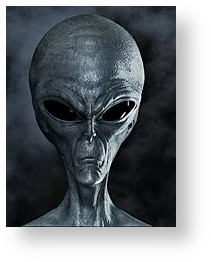earthlings.inSite21.com
An Intergalactic Report and Travel Advisory
Excerpts from Research Findings on Earthlings
October 13, 2025
An Intergalactic Report and Travel Advisory
Excerpts from Research Findings on Earthlings
October 13, 2025
The Muslim World View
The Muslim worldview is shaped by the teachings of Islam, a monotheistic Abrahamic religion founded in the 7th century CE by the Prophet Muhammad in what is now Saudi Arabia. The following are some key elements of the Muslim worldview:
1. Monotheism: Central to the Muslim worldview is the belief in the oneness of God, known as Allah in Arabic. Muslims believe that Allah is the only deity, and there is no god but Him. This monotheistic belief is expressed in the Islamic declaration of faith: "La ilaha illallah" (There is no god but Allah).
2. The Quran: The Quran is the holy book of Islam, considered the literal word of God as revealed to the Prophet Muhammad. It serves as the primary source of guidance for Muslims in matters of faith, practice, ethics, and laws.
3. Prophets and Messengers: Muslims believe in the prophethood of numerous messengers sent by Allah to guide humanity, including Adam, Noah, Abraham, Moses, Jesus, and Muhammad. Muhammad is considered the final and seal of all prophets.
4. Five Pillars of Islam: The Five Pillars represent the core acts of worship and practices that are central to a Muslim's life:
a. Shahada: The declaration of faith, affirming the oneness of God and the prophethood of Muhammad.
b. Salat: The performance of five daily prayers facing the Kaaba in Mecca.
c. Zakat: The giving of alms or charitable donations to support the less fortunate.
d. Sawm: Fasting during the month of Ramadan from sunrise to sunset.
e. Hajj: The pilgrimage to the holy city of Mecca at least once in a lifetime for those who are physically and financially able.
5. Accountability and Afterlife: The Muslim worldview emphasizes the concept of accountability before God in the Hereafter. Muslims believe in a Day of Judgment when all human actions will be weighed, and individuals will be rewarded or punished based on their deeds and faith.
6. Community (Ummah): Muslims view themselves as part of a global community of believers (Ummah) united by their faith in Allah and the teachings of Islam. This sense of unity extends across cultural, linguistic, and national boundaries.
7. Social Justice and Ethics: The Muslim worldview encourages compassion, justice, and ethical behavior. Islam emphasizes caring for the vulnerable, the importance of honesty, integrity, and the prohibition of harmful practices.
8. Divine Will (Qadr): Muslims believe in the concept of divine predestination (Qadr), acknowledging that everything that occurs in the universe is by the will and knowledge of Allah.
It's important to recognize that the Muslim worldview can vary across different cultural contexts and interpretations within the Islamic community. Islam is a diverse and dynamic religion with a range of beliefs and practices that can be influenced by historical, cultural, and regional factors.

-------- Contents --------
---- Sapiens ----
---- Travel Advisory ----
---- Are you the problem? ----
The Muslim worldview is shaped by the teachings of Islam, a monotheistic Abrahamic religion founded in the 7th century CE by the Prophet Muhammad in what is now Saudi Arabia. The following are some key elements of the Muslim worldview:
1. Monotheism: Central to the Muslim worldview is the belief in the oneness of God, known as Allah in Arabic. Muslims believe that Allah is the only deity, and there is no god but Him. This monotheistic belief is expressed in the Islamic declaration of faith: "La ilaha illallah" (There is no god but Allah).
2. The Quran: The Quran is the holy book of Islam, considered the literal word of God as revealed to the Prophet Muhammad. It serves as the primary source of guidance for Muslims in matters of faith, practice, ethics, and laws.
3. Prophets and Messengers: Muslims believe in the prophethood of numerous messengers sent by Allah to guide humanity, including Adam, Noah, Abraham, Moses, Jesus, and Muhammad. Muhammad is considered the final and seal of all prophets.
4. Five Pillars of Islam: The Five Pillars represent the core acts of worship and practices that are central to a Muslim's life:
a. Shahada: The declaration of faith, affirming the oneness of God and the prophethood of Muhammad.
b. Salat: The performance of five daily prayers facing the Kaaba in Mecca.
c. Zakat: The giving of alms or charitable donations to support the less fortunate.
d. Sawm: Fasting during the month of Ramadan from sunrise to sunset.
e. Hajj: The pilgrimage to the holy city of Mecca at least once in a lifetime for those who are physically and financially able.
5. Accountability and Afterlife: The Muslim worldview emphasizes the concept of accountability before God in the Hereafter. Muslims believe in a Day of Judgment when all human actions will be weighed, and individuals will be rewarded or punished based on their deeds and faith.
6. Community (Ummah): Muslims view themselves as part of a global community of believers (Ummah) united by their faith in Allah and the teachings of Islam. This sense of unity extends across cultural, linguistic, and national boundaries.
7. Social Justice and Ethics: The Muslim worldview encourages compassion, justice, and ethical behavior. Islam emphasizes caring for the vulnerable, the importance of honesty, integrity, and the prohibition of harmful practices.
8. Divine Will (Qadr): Muslims believe in the concept of divine predestination (Qadr), acknowledging that everything that occurs in the universe is by the will and knowledge of Allah.
It's important to recognize that the Muslim worldview can vary across different cultural contexts and interpretations within the Islamic community. Islam is a diverse and dynamic religion with a range of beliefs and practices that can be influenced by historical, cultural, and regional factors.

-------- Contents --------
---- Sapiens ----
---- Travel Advisory ----
---- Are you the problem? ----